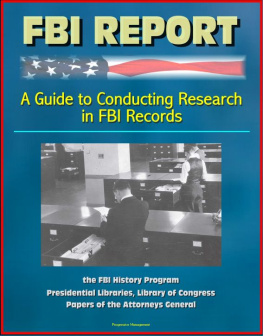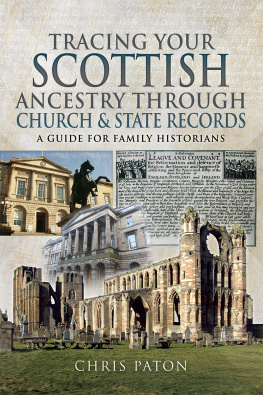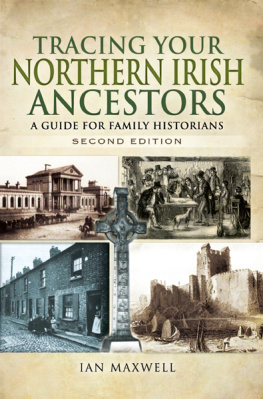British banking
British banking
A guide to historical records
John Orbell
Head of Record Services, ING Barings
Alison Turton
Head of Archives, The Royal Bank of Scotland Group
First published 2001 by Ashgate Publishing
Published 2017 by Routledge
2 Park Square, Milton Park, Abingdon, Oxon OX14 4RN
711 Third Avenue, New York, NY 10017, USA
Routledge is an imprint of the Taylor & Francis Group, an informa business
Copyright John Orbell and Alison Turton, 2001
John Orbell and Alison Turton have asserted their moral right under the Copyright, Designs and Patents Act, 1988, to be identified as the authors of this work.
All rights reserved. No part of this book may be reprinted or reproduced or utilised in any form or by any electronic, mechanical, or other means, now known or hereafter invented, including photocopying and recording, or in any information storage or retrieval system, without permission in writing from the publishers.
Notice:
Product or corporate names may be trademarks or registered trademarks, and are used only for identification and explanation without intent to infringe.
British Library Cataloguing in Publication Data
British Banking: A Guide to Historical Records.
(Studies in British Business Archives)
1. Banks and bankingGreat BritainArchival resources.
I. Orbell, John 1950. II. Turton, Alison.
332.10941
US Library of Congress Cataloging in Publication Data
The Library of Congress Control Number was pre-assigned as:
00135280
ISBN 13: 978-0-7546-0295-8 (hbk)
This substantially expanded Guide to historical records of British banking is testimony to the fulfilment of the purposes of the original publication. That has not only proved useful to a wide range of historians, but has also stimulated identification of many additional banking records. Those indeed were the hopes of the Business Archives Council when initiating the project some thirty years ago, and of the many financial institutions and other holders of banking records whose assistance was sought and generously given.
Over 700 archive collections in local record offices, university and local libraries and, of course, the banks themselves are represented. This wide coverage has brought, as the editors acknowledge in their introductory comments, unstinted help from many people concerned with the preservation of records.
Notable aspects of the Guide include expanded coverage of the records of major domestic banks, British overseas banks, merchant banks and discount houses. Of distinctive interest are additions, often small in themselves but particularly valuable in the light of existing scant documentation, to listings of records of long defunct banks. A feature likely to earn wide and warm appreciation is the provision, for most entries, of brief histories which ease the often bewildering path through numerous name changes, especially of local banks, before their complete disappearance or amalgamation. Along with that aid are, in many cases, references to existing studies of particular banks or groups of banks.
Another welcome feature is a new section describing the functions and records of collective banking activities: the committees and associations of clearing banks, merchant banks and discount houses; the English and Scottish Institutes of Bankers; and associations of bank employees.
Wider knowledge and understanding of financial history as a whole is facilitated by the Guide. Whilst it would be invidious to focus on any particular aspect, it indicates the ample scope for fruitful study whether at local, regional, national or international levels. Moreover, as non-banking historians have demonstrated, bank records concern not just banks but also the infinitely varied activities they financed. Yet that is not all. If historical study provides an indispensable link with our past, acquaintance with original records offers not only authenticity, but the indefinable satisfaction, indeed the excitement known to all historians, of direct contact with it. In this very thorough scholarly Guide , the editors and all who assisted in its production have made a notable contribution to historical study and, there need be no reticence in saying it, to its enjoyment.
L S Pressnell
April, 2000
The preparation of this Guide would not have been possible without the generous co-operation of the London and Edinburgh banking communities; with considerable openness and public spiritedness, they have freely provided us with a very great deal of information about their accumulations of historical records. We are extremely grateful both to them and to their archivists on to whom a great deal of work was loaded. Without their enthusiastic help, the compilation of this book would not have been possible.
In particular we are grateful to Henry Gillett and John Keyworth of the Bank of England; Alan Cameron and Seonaid McDonald of Bank of Scotland; Peter Emmerson and Jessie Campbell of Barclays Bank plc; Barbara Peters and Tracey Earle of Coutts and Co; Dr John Booker of Lloyds TSB Group plc; Edwin Green and Sara Kinsey of HSBC Holdings plc; Fiona MacColl and Susan Snell of National Westminster Bank plc; Vic Gray and Melanie Aspey of N M Rothschild and Sons Ltd; and our colleagues Jane Waller of ING Barings and Philip Winterbottom and Vicki Wilkinson of The Royal Bank of Scotland. Kit Farrow of the London Investment Banking Association gave us access to the archives of the Accepting Houses Committee and the Issuing Houses Association. Richard Vardy gave help with the archives of the London Discount Market Association and Dr Charles Munn did likewise with the archives of the Chartered Institute of Bankers in Scotland. We also received much help from the staffs of the British Bankers Association and the Chartered Institute of Bankers.
Archivists and librarians working in a very large number of record offices and other institutions have responded to our questions with their usual sense of courtesy and thoroughness; they devoted much time to supplying us with copies of lists and in checking questions of fact and we are very grateful to them. In particular Cynthia Short, Lesley Richmond and Nick Mayes kindly undertook surveys of the archives of Yorkshire Bank plc, Clydesdale Bank plc and the British Bankers Association on our behalf. Adrian Allan also undertook valuable investigative work.
In writing the history of individual banks we have drawn heavily on the published work of many historians. We are mindful of the debt that we owe to them and in particular to Harold Preston for his work on East Anglian banks, to Jack Parker for his study of Hertfordshire banks and to John Andrews ['John Ryton'] for his work on banks in Exeter. We are similarly thankful to the anonymous compilers of the list of defunct banks which appears annually in the Banker's Almanac; the accuracy and usefulness of their work certainly does not diminish with the passage of time. We have found G L Grant's The Standard Catalogue of Provincial Banks and Banknotes, published as long ago as 1977, and Fred Wellings's and Alistair Gibbs' more recent Bibliography of Banking History, published between 1995 and 1997, to be of enormous help.
Professor Leslie Pressnell played a key role in originating the first edition of this book. We are grateful for the foundations which he laid down and for his continuing support and enthusiasm for its successor edition. Sam Twining, President of the Business Archives Council, and Edwin Green, the Council's former Chairman, have been especially generous in their support.












